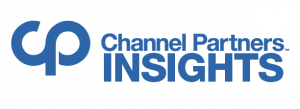3 Unconventional Ways to Launch the CCaaS Conversation3 Unconventional Ways to Launch the CCaaS Conversation
There's more than one way to start a CCaaS conversation.
December 7, 2018


Brandon Knight
By Brandon Knight, ScanSource Intelisys
 Anyone in the indirect channel has likely heard the term contact center-as-a-service, or CCaaS, and claims to understand the massive opportunity it represents.
Anyone in the indirect channel has likely heard the term contact center-as-a-service, or CCaaS, and claims to understand the massive opportunity it represents.
However, closing a CCaaS deal is another story entirely — most technology advisers struggle to speak the contact center language and generally misinterpret their customers’ needs. More than with any other vertical, contact centers require a consultative sale. A contact center leader brings on a technology adviser because they need someone to fill that “trusted adviser” role — they want actionable insights to help them deliver against their KPIs — key performance indicators, or “goals,” in contact center terms.
If your prospect isn’t primed to talk about CCaaS, you can use other angles of the contact center business as entry points. I like to call those “land and expand” opportunities. A contact center leader may not be asking how to move to the cloud, but they know they need a more unified communications infrastructure. They might not be thinking about CCaaS, but perhaps their on-premises equipment has caused them to rethink their disaster recovery strategy. These opportunities go both ways, too — you can move from the CCaaS sale, for instance, into a workforce management software (WFM) sale.
There’s more than one way to start the CCaaS conversation. Here are a few alternative entry points you can explore with your prospects.
Land & Expand Opportunity #1: Unified Communications-as-a-Service
A UCaaS customer is the most natural target for a CCaaS sale. This contact center leader already understands the selling points of cloud — flexible pricing, scalable services, remote agent enablement, etc. They’re looking toward the future and realize that their agents will be most productive with the right tools in hand.
Common selling points for UCaaS within the contact center vertical include the following:
Digital corporate directory access, click-to-dial and live presence technology;
Effective remote work options for agents, which widens the recruiting pool;
Unified channels with a consistent user experience for agents and customers;
The ability to escalate IM chats into phone calls and generally move between channels; and
Third-party application integrations, including integrations between automatic call distributors, CRMs, WFM software and more.
CCaaS is the perfect complement to the UCaaS package. A fully integrated agent portal improves productivity and reduces training time for new hires. It also enables them to handle multiple customer interactions at once. Omnichannel reporting, another compelling feature included with CCaaS, gives managers a 360-degree view of the customer journey. CCaaS also helps improve management productivity, thanks to unified configuration and admin tools. Quality management, including call recording and other features, is another selling point for CCaaS that fits naturally into the UCaaS conversation. Proactive outbound calling software can take a UCaaS-fueled contact…
…center to the next level — an automated dialer can generate more revenue and lead to fewer call hang-ups.
Land & Expand Opportunity #2: Workforce Management Software
Once you’ve performed the business process review (BPR), you’ll have gained an in-depth understanding of the inner-workings of the customer’s organization. The BPR is where the “trusted adviser” piece truly comes into play — if you’re able to identify ways to improve specific processes across the contact center, including their workforce management, you have a window for a sale. The CCaaS package often features WFM software, so this is another excellent opportunity to expand into the full CCaaS deal.
Selling-points for WFM software include the following:
Improved forecasting with prebuilt algorithms to assess all channels;
Sophisticated scheduling tools that increase management efficiency;
Automatic tracking aids and minimized idle time for agents;
Preprogrammed notifications and alerts that help adapt quickly to changes;
Synchronized scheduling with skill sets reduces head count requirements;
Less administrative effort and maintenance requirements;
Better agent engagement and schedule adherence;
Intraday plans that can be auto-generated to mitigate spikes in call volume; and
Empowering for agents by allowing them to submit scheduling requests and bid for vacation slots.
A CCaaS sale is one step away from the WFM software sale. If your prospect is excited by all the tools a WFM platform can offer, the time is now to open the CCaaS conversation. If they are interested in boosting agent productivity and minimizing idle time, then your prospect will likely be interested in quality management features that often come in a CCaaS package. CCaaS generally offers on-screen and call recording, self-evaluations for agents, automated feedback, and even surveys for customer satisfaction. Some CCaaS solutions also include performance management software that can be configured to help agents work toward customized goals.
Land & Expand Opportunity #3: Business Continuity and Disaster Recovery
If a contact center leader is concerned about business continuity and disaster recovery (BC/DR), then they likely already understand the risk inherent in using premises-based contact center solutions. CCaaS is a cloud-based managed service; it completes the business continuity piece of the equation and often comes bundled with disaster recovery solutions.
Contact center leaders focus on the following points around BC/DR:
It enables emergency coverage from remote or temporary agents at another location;
Their data is safe in the cloud — contact centers use customer data constantly. They also rely on historical data to forecast scheduling, assess quality, review customer feedback and measure their overall success;
There’s a strategy in place for recovering their data.
A contact center that operates with premises-based equipment is highly susceptible to business disruption due to natural disasters or other circumstances. Even contact center leaders who balk at the…
…idea of migrating all of their data to the cloud will understand the necessity of establishing a solid BC/DR plan. In the process of creating this strategy, you have the opportunity to showcase the value of cloud-based infrastructure and eventually move into a broader conversation around CCaaS.
With these CCaaS kick-starters in mind, where do you begin? Leverage the business process review (BPR) to uncover these unconventional entry-points for the CCaaS sale.
The BPR starts with a conversation about the customer’s existing processes and then proceeds to an in-depth whiteboarding session of all their existing technology and processes. Your ability to perform an exhaustive BPR proves that you are capable of filling the trusted adviser role — it’s the secret to the sale. Your understanding of the vertical and the common issues they face will bolster your credibility.
Keep in mind that attrition is always the No. 1 issue no matter the vertical, and you have a direct impact on this pain point by helping to put the right tools in the agents’ hands. Overall, don’t be afraid to challenge the contact center leader and invite them to think about more than the day-to-day needs of running the organization. Even if CCaaS isn’t on their radar, they’ll thank you for helping them see the value of a comprehensive solution.
Brandon Knight is a 27-year cloud, telecom and contact center industry veteran, with a significant PaaS and SaaS background. He is the founder and president of the consulting company Exceptional Contact Centers, and an Intelisys sales partner. Knight previously served multiple leadership roles with Novation Companies, including UC Cloud Provider Corvisa Cloud. He also held several management roles with Humana Inc., Healthesystems Inc., The Travelers Companies Inc. and Sprint PCS. In addition, his role as a cloud and telecom consultant with Elite Management Consultants for eight years grants him a uniquely valuable perspective in the cloud evangelist role. As cloud evangelist for Intelisys, he has multiple touch points with their sales partners and participates heavily in the development and delivery of Cloud Services University content; Intelisys live education events; and has direct communication with sales partners as they navigate larger cloud deals. Knight’s ability to look at an outwardly simple deal or solution and identify additional points of entry for revenue and customer stickiness benefit the Intelisys community, as he assists in developing that same skill in sales partners. Follow him on LinkedIn or Twitter @CloudEvnglst.
Read more about:
AgentsYou May Also Like
